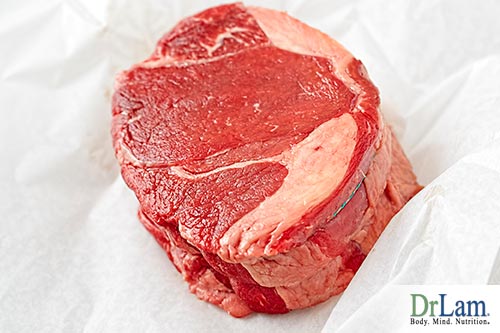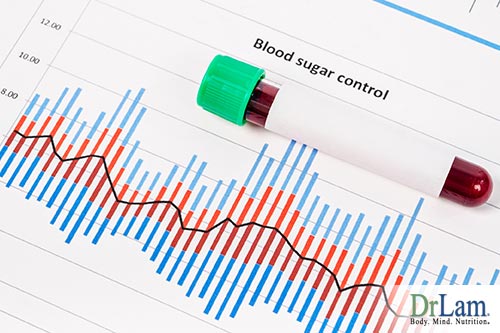 When reading different viewpoints on a high-fat (ketogenic diet) versus a low-fat diet, it would seem the medical community is in disarray. One group advocates for a high-fat diet, while another for a low-fat diet. If you read what each group has to say, each may make sense. Each is also correct, but only to a certain extent. We are going to investigate in more detail and determine whether it may strike the right balance for everyone.
When reading different viewpoints on a high-fat (ketogenic diet) versus a low-fat diet, it would seem the medical community is in disarray. One group advocates for a high-fat diet, while another for a low-fat diet. If you read what each group has to say, each may make sense. Each is also correct, but only to a certain extent. We are going to investigate in more detail and determine whether it may strike the right balance for everyone.
Certain research shows an indication that a high-fat diet may have a negative impact on your brain, especially with regards to cognition and neurodegeneration. Their findings go on to mention that a high-fat diet affects the hippocampus in the brain (which is essential for learning and memory). In other words, according to the study, it causes damage to your brain.
On the other hand, they found that once taken off a high-fat diet, brain activity returned to normal after approximately two months. So the effects are not lasting if proper dietary measures are introduced.
What they found from this study was that a high-fat diet may trigger inflammation which, in turn, may trigger an autoimmune response in the central nervous system. Where this usually serves to protect the brain from a possible threat, a high-fat diet tended to block the process.
Similarly, another study looking at the effect of a high-fat diet on the brain noticed that it actually reduces the amount of glucose utilized by the brain. This situation has a negative effect on the hypothalamus, which controls your metabolism, as well as the cerebral cortex, influencing learning and memory.
Because the brain is not getting the glucose it needs, it actually stimulates cravings for sugary foods in an effort to meet its requirements. This has far-reaching consequences, e.g. you may end up becoming insulin resistant or put on weight.
Conversely, there is research that says that fat is good for you. That, in fact, it is essential for your continued health. This is also true. Fats play an essential role in the body, and too little fat may result in equally disturbing health conditions.
Research shows that fat in the diet is essential for the development of ‘good’ cholesterol, and that fat may have been given a bad rap over the years, being cited as one of the main reasons for heart disease and modern lifestyle health issues. Not all fat is bad for you. In fact, it may actually be good for you.
In the United States, more people are obese than ever before. The reason for this is simple. Diet has changed. People are eating a high carbohydrate, low-fat diet and picking up weight. The reason for so many health issues lies in the fact that carbohydrates are easily turned into glucose. Glucose that cannot be used by the body is stored as fat.
Also, the type of fat consumed is the issue, not fat in general.
There are different types of fat, some are good, while others are not so good.
There are, essentially, three types of fats. Each has its own function. Not all are deemed ‘good fats’. So how do you know the difference and what do you do about them?
Naturally occurring fats tend to be your best bet. In other words, those fats that have not been altered due to certain processes.
 Most food, even healthy food, (e.g. chicken or nuts) has a certain percentage of saturated fats. Common sources of saturated fats are mostly from animal protein and products, e.g. beef, cream, or cheese. Some plants, however, also have a high saturated fat content, including coconut oil and palm oil.
Most food, even healthy food, (e.g. chicken or nuts) has a certain percentage of saturated fats. Common sources of saturated fats are mostly from animal protein and products, e.g. beef, cream, or cheese. Some plants, however, also have a high saturated fat content, including coconut oil and palm oil.
Although saturated fats increase your cholesterol levels, too little saturated fat lowers your levels of ‘good’ (HDL) cholesterol. This is bad for the heart. Cholesterol is also the building block of the precursor hormone pregnenolone from which other steroid hormones are manufactured, primarily in the adrenals.
Saturated fats provide us with a number of health benefits, among these are:
There are two types of unsaturated fats - polyunsaturated fats and monounsaturated fats.
Polyunsaturated fats are usually in the form of vegetable oil. Certain health conditions (e.g. heart disease) are linked to polyunsaturated fats to a large extent. Some polyunsaturated fats occur naturally, while others are processed. It is the processed form of polyunsaturated fats that are detrimental to your health as they worsen your ‘bad’ cholesterol levels.
Examples of processed polyunsaturated fats include processed cooking oils, e.g. sunflower oil, canola oil, soybean oil, and walnut oil, to name but a few.
Unprocessed polyunsaturated fats, on the other hand, improve your cholesterol levels and include oily fish (salmon, herring, tuna), walnuts, and sunflower seeds.
Trans fats are usually only present in processed fatty foods. These may be natural fats that have been manipulated to allow for a longer shelf life. The processes these fats are subjected to change their chemical composition and can be linked to heart disease and high ‘bad’ cholesterol levels.
Essentially, it is not the fat that is a bad thing. In fact, we need fats in our diet as they are essential for certain bodily processes. It is, however, the type of fat we consume that causes the problem, such as trans fats from fast foods and processed foods, and manipulated polyunsaturated fats. But even here, one needs to temper your diet and remember moderation. Too much of anything ultimately has a negative impact on your continued good health.
Fat impacts the body in a number of ways:
The modern Western diet is vastly different from that of a century ago. The war waged on fats in favor of carbohydrates, as well as the trans fats consumed via fast foods and processed foods, sees people consuming less ‘good’ fats that the body needs to function correctly. This has had a debilitating effect on our health and is partly to blame for an increase in metabolic problems and the occurrence of Adrenal Fatigue Syndrome (AFS).
Adrenal fatigue seems to be a symptom of the modern times we live in. It is not uncommon for people, who seem absolutely healthy, to show a number of diverse symptoms without actually being identified as ill. Among these symptoms are included:

This increase in cortisol production, for a short term, sees the body either shutting down or slowing down processes that are not deemed essential to sustain life. The higher cortisol levels are accompanied by an increase in blood sugar levels, as the body readies itself to tackle the situation by either fighting or running from the threat. Once the threat is over, normal cortisol production ensues while other processes also return to normal. In other words, the body’s homeostasis is restored.
Prolonged stress, on the other hand, keeps the body in a state of imbalance. More and more cortisol is produced, using up the body’s reserves of pregnenolone, a precursor hormone for most other hormones, in the making of cortisol. This has a cascading effect on other body functions.
Ultimately, at some point, the adrenal glands are no longer able to keep up with the demand for cortisol, and they crash. The health effects are debilitating and it may take a long time for the body to recover.
A diet consisting of healthy fats, however, can help with the situation. But the key, as in most things, is moderation.
The modern western diet tends to shy away from fats, focusing instead on carbohydrate consumption. This diet, however, has seen an increase in obesity, the occurrence of diabetes, and an increase in certain psychological conditions, e.g. anxiety, depression, and eating disorders. These symptoms all correlate with the occurrence of adrenal fatigue.
The ketogenic diet advocates for lower carbohydrate consumption. Because of this, the ketogenic diet is also referred to as the low carb diet or a low-carb high-fat diet.
The problem with carbohydrates is that the body easily breaks it down into glucose. It is able to rapidly enter into your bloodstream. This is what some people experience as a sugar rush. The problem with this is that your body does not need to really work very hard to do so, while the pancreas needs to work harder in order to produce the necessary insulin to deal with it.
Just as quickly as it enters into your bloodstream, it can also quickly leave the bloodstream. This can result in reactive hypoglycemia, where even though your blood glucose levels may be normal, a sudden drop in your blood sugar can actually leave you feeling fatigued and tired.
A diet that is higher in fats and low in carbohydrates, however, relies on a process known as ketosis. It is a process initiated by the body that breaks down fat in the liver into ketones, a primary source of energy.
Of course, while most of the body is quite able to live off ketones, certain parts need glucose. The body thus converts fats into carbohydrates by means of gluconeogenesis in order to meet this need. This allows for more stable blood sugar levels in your body.
If you follow a ketogenic diet, you may find that your urine smells stronger or your breath smells more than is normal. This is primarily due to the breakdown of fat into ketones during your sleep. It is a natural byproduct of the ketogenic diet.
In essence, the absence of carbohydrates in the ketogenic diet ensures that fats are processed in order to supply the body with energy.
When you increase your (healthy) fat consumption and reduce your carbohydrates, you not only lose weight due to your body fat converting into energy (a process that uses energy), but notice a number of health benefits as well. The ketogenic diet can:

The ketogenic diet may also:
While weight loss can be an issue when it comes to adrenal fatigue, the ketogenic diet is not the best way to do it. To understand why, you must keep in mind that AFS is triggered by chronic stress. The ketogenic diet can be a form of physical stress. Hence, it further exacerbates any symptom you are already experiencing.
When your body goes into ketosis, it forces the body to create glucose using fats and proteins. This process takes more energy than creating glucose from carbohydrates. When a process in the body takes additional energy, it can be classified as a stressor. This is especially significant when the body is already in a low-energy state due to AFS.
 Aside from this, there are also some studies that have discovered a critical link between the ketogenic type of diet and a significant increase in cortisol in the body. According to a study conducted by the Children’s Hospital Boston, a diet that’s extremely low in carbohydrates significantly increased cortisol levels among participants.
Aside from this, there are also some studies that have discovered a critical link between the ketogenic type of diet and a significant increase in cortisol in the body. According to a study conducted by the Children’s Hospital Boston, a diet that’s extremely low in carbohydrates significantly increased cortisol levels among participants.
Constantly high cortisol levels are a primary cause of AFS, and can be quite problematic if you are already experiencing adrenal fatigue. Your body may not be able to keep up with this demand for cortisol at all, and there is no way for your body to restore its normal adrenal function if your cortisol remains at a constant high. The body’s NeuroEndoMetabolic (NEM) Stress Response is also drastically affected.
Continuously high cortisol levels caused by a ketogenic type of diet can worsen certain effects of adrenal fatigue you might already be feeling. These include mood swings, depression, sleeplessness, loss of energy, and loss of sex drive. Even worse, your ability to fight off any infection is also weakened, making you more vulnerable to illness.
Because of this, it is advisable to stay off the ketogenic diet completely while you are suffering from AFS. Instead, opt for a diet that was developed with your condition in mind. This ensures that your food supports your unique health needs, and once your AFS is under control you can try other options.
There is a diet designed to gradually improve any symptoms of adrenal fatigue you are experiencing so that it doesn’t worsen and progress. In contrast to the ketogenic type of diet, the adrenal fatigue diet uses food to reduce stress on the adrenal glands. This way, hormones like cortisol can be better regulated.
The adrenal fatigue diet comes with certain basics, including:
 Eating small meals frequently during the day ensures healthy blood sugar levels. It also helps prevent any blood sugar spikes or crashes. Typically, your meals throughout the day should include breakfast, early lunch, snack, dinner, and a pre-bed snack.
Eating small meals frequently during the day ensures healthy blood sugar levels. It also helps prevent any blood sugar spikes or crashes. Typically, your meals throughout the day should include breakfast, early lunch, snack, dinner, and a pre-bed snack.
In any of your meals, you should not eat one food group alone. Instead, your plate should consist of vegetables and proteins or carbohydrates and vegetables along with some healthy fat. This ensures that you have enough energy throughout all of your daily activities.
If you are experiencing adrenal fatigue, vegetables can be especially helpful. They contain various essential minerals, antioxidants, vitamins, and fiber.
You might not realize it, but your level of hydration partly determines how well you can manage or overcome stress. In fact, a study by the University of Cincinnati and the Cincinnati Children’s Hospital Medical Center found that your hydration state controls your stress responsiveness. Thus, if you drink more water regularly, there is a reduced chance of your stress levels going up.
If you are experiencing AFS, there are also certain foods that are better for you than others. These are generally what comprise the adrenal fatigue diet. Nonetheless, it is always better to consult with a physician before you try any diet plan. This way, it can also be determined if you have an allergy or sensitivity to certain foods before you start consuming them.
That said, here are the foods you should consume:
Fermented foods.
The good bacteria present in fermented foods and drinks help support both digestion and nutrient absorption. Go for plain yogurt, kefir, or sauerkraut. Be sure to take some every day.
Cruciferous vegetables.
People with adrenal fatigue tend to also suffer from high acidity and eating cruciferous vegetables is one of the most effective and easiest ways to relieve it. These foods can help restore healthy PH levels in the body when eaten daily. Go ahead and load up on cauliflower, broccoli, kale, Brussels sprouts, and radishes.
Leafy greens.
Green leafy vegetables are rich in iron, chlorophyll, magnesium, vitamin C, and iron. These nutrients are effective in supporting mental and physical balance in the body. Be sure to have some arugula, collard greens, spinach, and romaine lettuce regularly.
Seaweed.
Seaweeds are rich in iodine and various other minerals. They don’t only support your adrenal glands. They also help normalize elevated adrenal hormone levels as well.
On the other hand, there are also foods that you are better off avoiding if you have AFS or adrenal fatigue. These include processed foods, artificially flavored foods, and deep-fried foods. At the same time, it’s best to avoid consuming anything that’s got a high sugar, alcohol or caffeine content.
 As you can see, there is a diet that works much better than a ketogenic diet if you happen to be dealing with AFS. Keep in mind, the type of food you consume can affect how your body functions and how you feel. Be cautious about trying any fad diets as they may worsen your adrenal fatigue. Instead, eat properly to help alleviate your condition, and make sure you talk to your doctor about your individual health needs. Soon, you will find that you are feeling much more energized and better able to deal with stress.
As you can see, there is a diet that works much better than a ketogenic diet if you happen to be dealing with AFS. Keep in mind, the type of food you consume can affect how your body functions and how you feel. Be cautious about trying any fad diets as they may worsen your adrenal fatigue. Instead, eat properly to help alleviate your condition, and make sure you talk to your doctor about your individual health needs. Soon, you will find that you are feeling much more energized and better able to deal with stress.
It may seem that cutting fats out of the diet leads to a range of metabolic and other health problems that had not been considered before. However, any damage done may not be permanent if the balance is restored and good fats are incorporated into the diet.
While it may be true that a diet high in fats may be detrimental to your health, one needs to note that the main problem is fats that have been altered in some fashion, i.e. trans fats, that are so prevalent in most so-called western foods (fast foods and processed foods).
Cooking with extra virgin olive oil is not really recommended when on a ketogenic diet as heat changes the chemical composition of the oil, turning it into a trans fat – which is unhealthy. Refined olive oil, however, can be used for cooking.